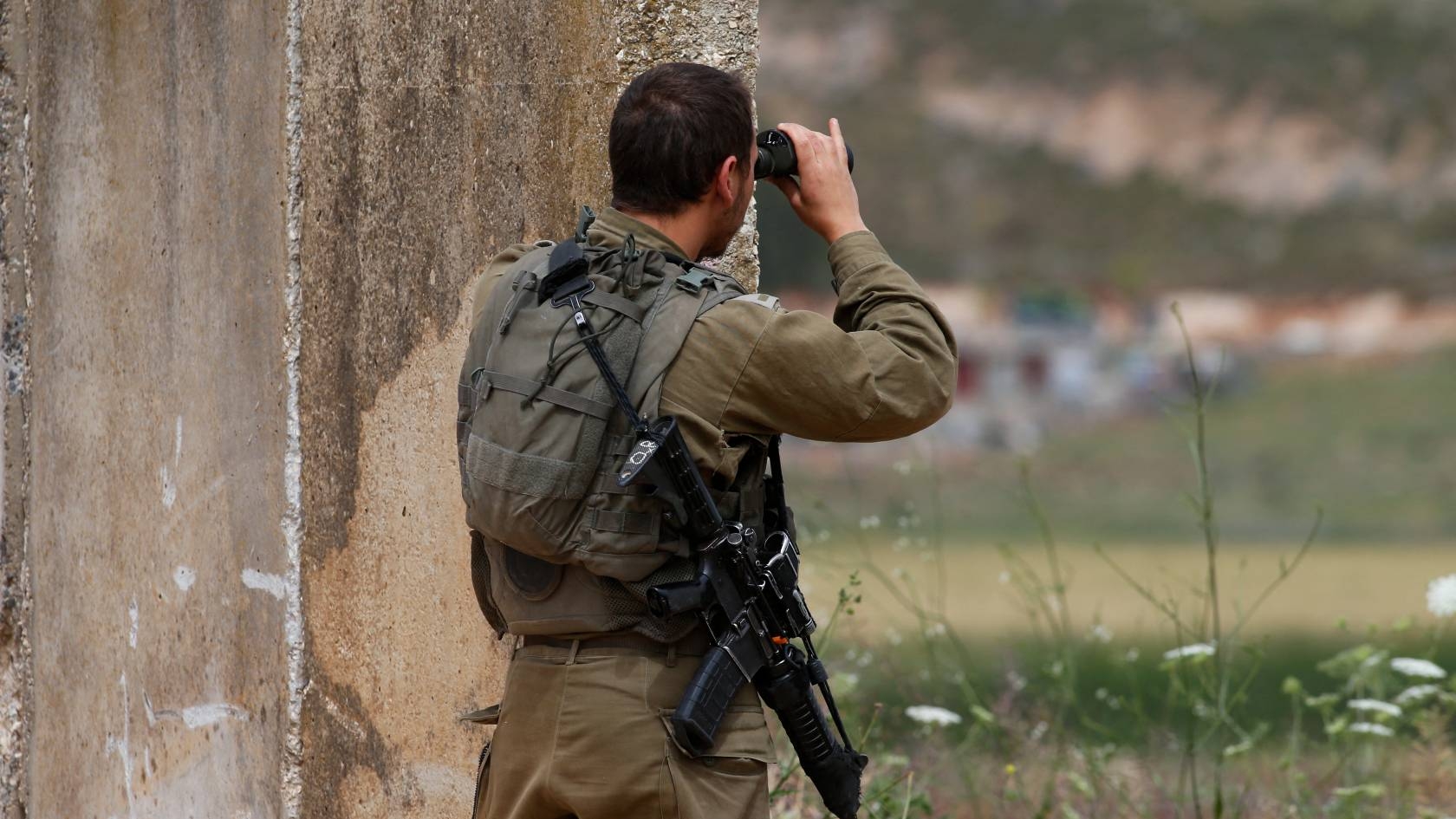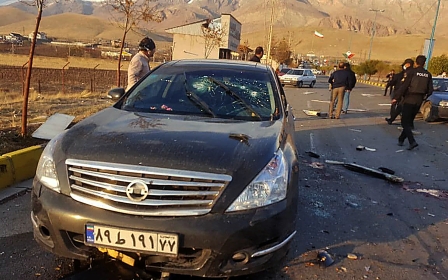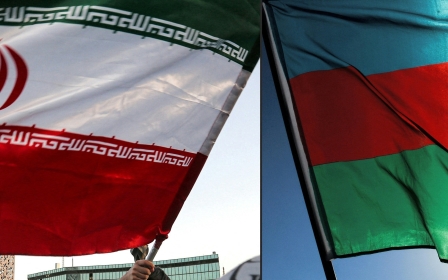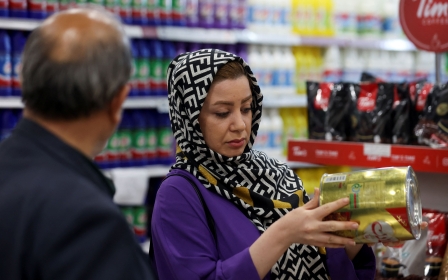Israel raises security alert level abroad following killing of IRGC colonel

Israeli diplomatic missions have raised their security, as it braces for Iranian retaliation following the assassination of a senior member of the Revolutionary Guard Corps (IRGC) in Tehran on Sunday.
Israel has not claimed responsibility for the killing of colonel Sayad Khodai, who was shot by two gunmen riding a motorbike outside his home in Tehran before fleeing the scene.
However, ISNA news agency reported on Sunday that members of an Israeli intelligence service network have been discovered and arrested by authorities.
"The thugs and terrorist groups affiliated with global oppression and Zionism will face consequences for their actions," IRGC spokesperson Ramazan Sharif was quoted as saying by the semi-official Mehr news agency.
New MEE newsletter: Jerusalem Dispatch
Sign up to get the latest insights and analysis on Israel-Palestine, alongside Turkey Unpacked and other MEE newsletters
Israeli Kan news reported on Monday that Israel is increasing its security alertness in missions and embassies worldwide. Kan also claimed that Khodai had orchestrated attacks against Israeli targets in Kenya, Colombia, Cyprus and Turkey.
Iranian President Ibrahim Raisi lamented the death of Khodai, blaming the "hands of global arrogance" for his killing and vowed revenge.
"I insist on the serious pursuit (of the killers) by security officials, and I have no doubt that the blood of this great martyr will be avenged," Raisi said.
'Impressive achievement'
Kan reported that Khodai was the handler of IRGC member Mansour Rassouli whose plans to assassinate an Israeli diplomat in Istanbul were thwarted by Mossad.
Israeli media said in May that Rassouli had confessed to Mossad agents interrogating him in his home in Iran that the IRGC tasked him with the assassination of an Israeli diplomat in Turkey.
Ynet described Khodai's assassination as an "impressive achievement" and said Israel had settled the score with Khodai who had planned several attacks and assassination attempts against Israeli figures and targets, including the Israeli consul in Istanbul.
Ynet said that Israel has expanded its scope of targeting Iran, from inside Syrian territories to the Iranian capital Tehran. Khodai is the highest Iranian figure to be targeted since the killing of Mohsen Fakhrizadeh, a top Iranian nuclear scientist, in November 2020.
In both incidents, Iran had accused Israel of standing behind the assassination, but Tel Aviv has never claimed responsibility.
The shooting of Khodai came as the US administration of Joe Biden considers removing the IRGC from its terrorism list as part of ongoing negotiations in Vienna to revive the 2015 nuclear deal with Tehran.
Israeli officials have expressed alarm over the potential delisting of the IRGC and are pushing to prevent the move.
At Iran's borders
Days before Khodai's assassination, the Israel Hayom newspaper reported a visit by the Israeli Agriculture Minister Oded Forer to the Azerbaijan-Iran borders.
Forer, a former navy officer, toured an agricultural "smart village" project created in cooperation with Israel, only seven kilometres from the northern Iranian borders with Azerbaijan.
"I am happy for the opportunity to visit the smart village near the border with Iran and see a lot of Israeli knowledge and technology that builds life," Forer said.
In October, Iran accused Azerbaijan of facilitating a foothold to Israeli intelligence activities along its borders. As a result, Tehran carried out a military drill near the border last October, involving 40,000 soldiers, tanks, helicopters and artillery, warning Baku to expel the "zionists" from the area.
Azerbaijan denied the Iranian allegations of an Israeli military presence on its soil.
Middle East Eye delivers independent and unrivalled coverage and analysis of the Middle East, North Africa and beyond. To learn more about republishing this content and the associated fees, please fill out this form. More about MEE can be found here.




